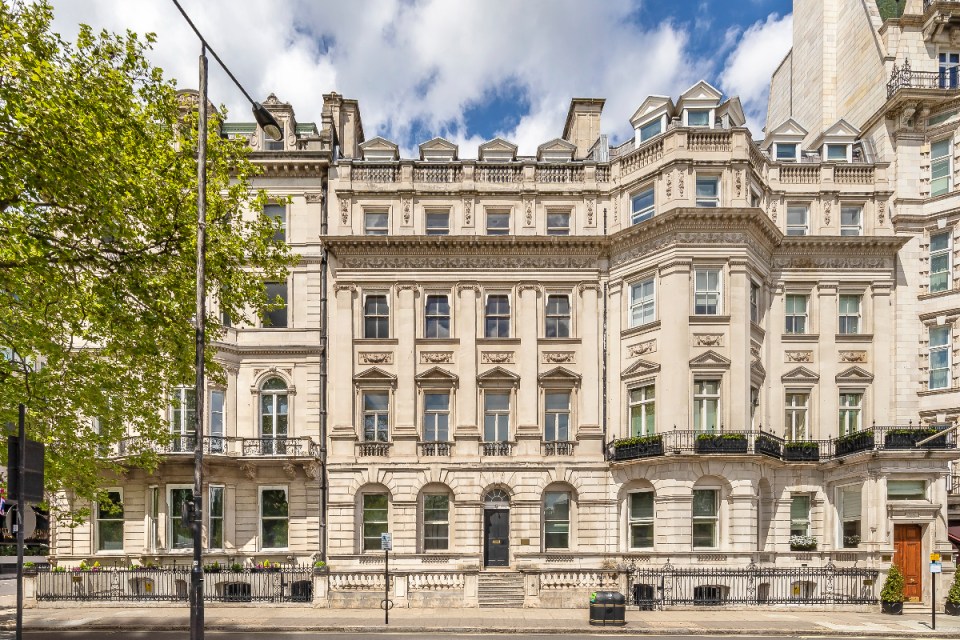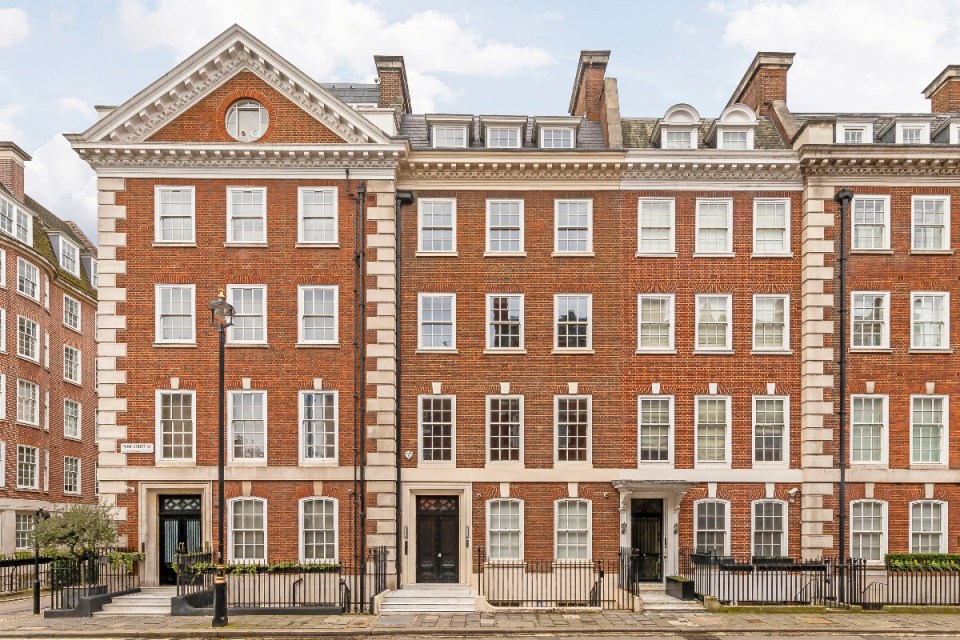Russian billionaires out, US billionaires in: Mapping London’s super-prime property market

Timur Kulibayev is not one of the more notorious billionaire oligarchs with a significant property portfolio in London.
The Kazakh billionaire, whose father-in-law is Kazakhstan’s former autocratic president Nursultan Nazarbayev and whose work on the board of Russian energy giant Gazprom has helped him to a fortune of an estimated £5bn, likes to keep a low profile and rarely courts public attention.
Nevertheless, the energy mogul’s recent decision to offload his two mansions on one of Mayfair’s most exclusive streets is noteworthy for watchers and insiders of the arcane and unusual world of London super-prime property.
41 Upper Grosvenor Street, which was picked up for a cool £35m by the Ben Williams-founded property investment firm North Wind Capital, has stood empty and in a state of increasing disrepair for roughly 20 years.
Its once-white stucco front is greyed from the fumes of passing SUVs. Its windows are boarded up either side of a letter box covered in Sellotape, which is accompanied by a sign requesting no junk mail.
The mansion’s dilapidated state and the identity of its former owner—who is also trying to sell the adjacent 42 Upper Grosvenor Street—reflect the health and evolving nature of the market in which it exists and potentially even London’s place in the world.
What is happening in the London super-prime property market?
“There is no doubt that we are at a low ebb of a seven-year downward cycle of prices,” says Stuart Bailey, who heads up super-prime sales at Knight Frank. “We’re down between 16 and 17 per cent since the peak of 2015, and London – unlike the countryside – has stayed pretty flat in the past two years or so.”
Prior to the unsettling effect that the UK’s decision to leave the European Union had on the famously international super-prime market, London was seen as the most desirable place for the world’s high-flyers to establish roots and do business.
Between 2007 and 2014 Knight Frank saw a 63 per cent increase in the number of annual super-prime transactions in London, which generally encompasses homes that sell for £10m or more.
And the city ranked top in the estate agent’s 2015 Global Cities Index, an annual assessment of the ‘important’ cities to ultra-high net worth individuals.
“The rule of law, determined and strong politics, good policing, and world-leading hospitality and services industries all helped stand London out from the crowd for international super-prime buyers,” says Bailey.
“Things haven’t fallen off a cliff, but Brexit, followed by a pandemic, followed by a high interest rate environment have all meant that we have seen a slow decline over seven years.”
The end of ‘Londongrad’
Along that timeline outlined by Knight Frank’s Bailey is another seismic global event that one might assume will have further amplified the market’s decline.
Russia’s invasion of Ukraine prompted the UK government to introduce strict sanctions on super rich Russians with ties to the Putin regime, including seizing oligarch-owned homes. The value of these homes totalled an estimated £800m, according to a Panorama analysis, signalling a potential end to the years of former Soviet bloc kingpins using London as a laundromat.
To be clear, Kulibayev resigned from Gazprom after the Russian invasion of Ukraine and unrest in Kazakhstan. He is not known to be close to the Russian regime in any way.
In the years before the incursion, Britain’s capital became known as “Londongrad,” in recognition of the ex-Soviet oligarchs who had shored up their rapidly accumulated wealth in the city’s unplunderable high-end bricks and mortar.

But in Bailey’s view, the end of Londongrad significantly predates February 2022. “Even before Russia’s invasion of Ukraine, Russian buyers and Russian activity in London had already massively subdued from the heady days of 10 to 15 years ago,” he says.
Now, property agents like Knight Frank, Savills and Beauchamp Estates are looking both west and even further east for the international money that has dominated London’s super prime market in the last 30 years.
“Nowadays there are plenty of Chinese buyers in London. Quite often we’re finding their move is education-based, with their kids moving and living and being educated here. And North Americans are also buying in London – they’re pretty discreet – but they’re very much there.”
This latter cohort has made the most of the dollar’s continued strength to become a major force in the higher end of the capital’s property market.
According to the luxury estate agent Beauchamp Estates, US ultra-high net worth buyers accounted for half of sales worth £15m or more in 2022, a trend which Gary Hersham, the estate agency’s director, says continued last year along with an uptick in Middle East buyers.
“Buoyant oil and gas prices and booming domestic property markets have generated huge cash reserves in Saudi Arabia, Abu Dhabi and Dubai, and the Sheikhs have chosen to invest a significant chunk of these revenues in London super-prime residential property,” he says.

“The Middle East and American buyers have made their purchases in London’s so-called platinum triangle – Mayfair, Belgravia and Knightsbridge, which is why these three addresses have been where the most £15m plus deals took place in 2023.”
What type of home do the ultra-rich want?
The profile of buyer isn’t the only thing that has evolved. According to Bailey, the type of home that ultra-rich house hunters are looking for is changing too.
“There’s a real demand now for large, newly refurbished single unit houses,” he tells City A.M. Whilst those lateral apartments in newly done schemes with amenities and security that have dominated the market in recent years remain popular – and are getting the highest prices per square foot – now, turnkey, newly done houses in very good condition are in very high demand.”
This change in tastes helps explain North Wind Capital’s interest in Kulibayev’s Upper Grosvenor Street home. In line with Bailey’s experience, the private equity property firm plans to redevelop the dilapidated mansion before putting it back on the market.
If they truly want to reflect the super-prime market’s changing of the guard, all they’ll need next is to find an American or Arab billionaire.
This article has been edited.
